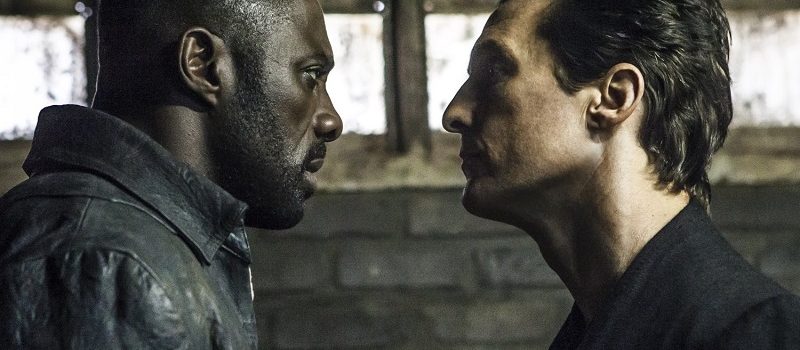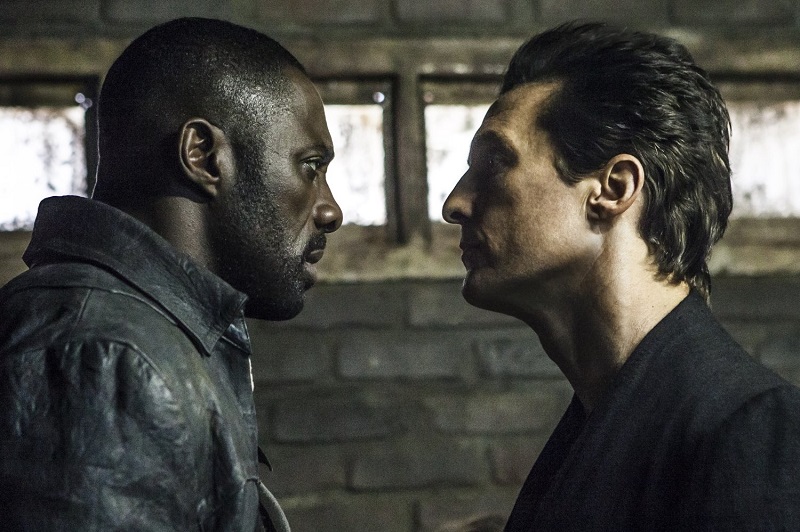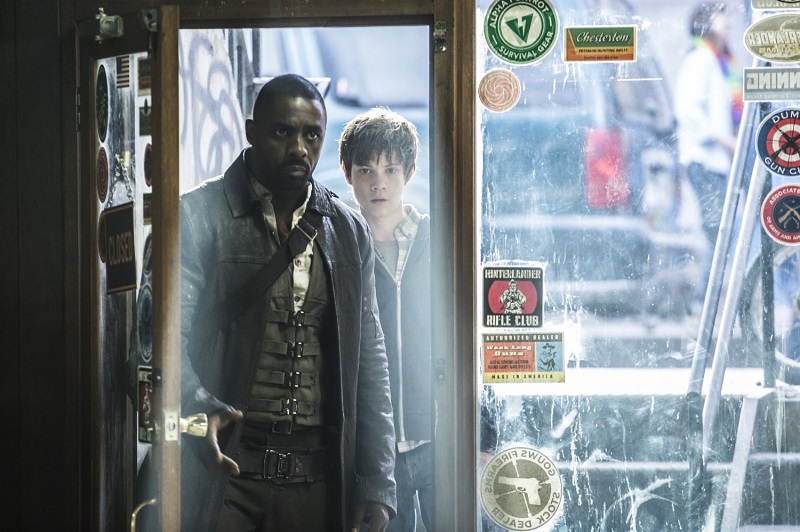For fans of Steven King’s The Dark Tower books, the journey the silver screen has been a long and arduous journey, just like a certain Gunslinger following the Man in Black across the desert. It was set to be a miniseries, and then Ron Howard expressed interest in bringing it to the big screen before both of those incarnations fell apart. Now it finally makes its way to cinemas and if there is one phrase that can describe the experience for a fan of the books witnessing the Nikolaj Arcel directed soulless mess, it is “such a shame.”
Idris Elba is Roland Deschain, aka the Gunslinger and Matthew McConaughey tackles the dealer of death, the Man in Black, aka Walter Padick. The two have been on a collision course of good versus evil for as long has time has been ticking. There were many Gunslingers, but for some reason Roland is immune to any sorcery that Padick throws at him. Therefore, he is the last of his kind.
The pair’s latest battle finds them squaring off over a boy, Jake Chambers (Tom Taylor), who may be “the one” who The Man in Black seeks in his effort to destroy The Dark Tower.
See, the Dark Tower, according to the movie, is what keeps our world (and others) safe from the darkness of evil. That is not completely what it is laid out to be in the books, and that is just one of many alternations that occurred on this property’s journey from page to screen. There are many realms and worlds, of which Earth is just one. But as long as Padick is searching for young minds to channel for destruction of the Tower, Deschain will be on his tail.
The Dark Tower is a succinct 90-plus minutes. There are thousands of pages in The Dark Tower series and one can understand the need for brevity when bringing it to the screen. But at the sacrifice of tone is a cardinal sin on behalf of filmmakers. Cuts are jagged and on many occasions jarring. One particular emotional scene is cut before any feelings can warm over the audience and we are quickly sent to another locale and all connection from the heart of the viewer is lost. The film is soulless and feels robotic in nature and that is not at all what the novels are in their totality.
Also, we are not sure what books filmmakers read. Even though Elba is electric in the role of The Gunslinger, he is the focal point for King and the book’s readers. On the big screen, the spotlight is on Jake. The tale is told completely from his angle. It’s his story. That too is jarring, honestly. It is not what King had in mind and the film as a hole, we believe, suffers from this shift in perspective. This is an epic tale about a titanic clash between good and evil. Period. The boy is merely a spoke in the wheel to tell a particular part of the series. What may have worked for Stranger Things is not necessarily carte blanche for everything else in the supernatural realm to tell its tale from a youth perspective. This is an adjustment that need not have been made.
The two leads do the best with what they’re given. It is a joy to see McConaughey tackle a role that all-encompasses evil. He seems to delight in it, but at the same time does so without a flair as some actors may have been tempted to do. The Man in Black is evil, yes and he deals death like he is passing out business cards. The Oscar winner portrays him as someone who knows nothing else. That is simply how he is wired.
The same can not be said for Elba. His Gunslinger knows nothing else but his lifelong battle against The Man in Black. But the costs to him have been so personal over the centuries, that it has taken its toll. As we meet him, he is a more rugged around the edges version of himself. Fans of the book will note the missing hat, but also the Man Without a Name-vibe that King gave the character in the novels. That’s ok. With Elba at the wheel, it feels like a smooth transition and although the character looks quite different on the screen than he does on the pages, this is a change that not only can be forgiven. It can be embraced, especially in the hands of a talented thespian such as Elba.
Director Arcel may have stepped in for Howard when his schedule or interest precluded him from making The Dark Tower. The Denmark born helmer could be blamed for the failures of the film, but that would be a too simplistic approach to attaching fault. The problem here lies in a bigger picture problem. There were too many chefs in this kitchen. There were too many script alternations. There were too many reshoots to save what truthfully had already been lost. The best thing for The Dark Tower is to lie low for a few years, and then come back as its true self — a sweeping, western supernatural epic of the highest power that enthralls us over a long period of time — a la a miniseries. Please?
Grade: C-



